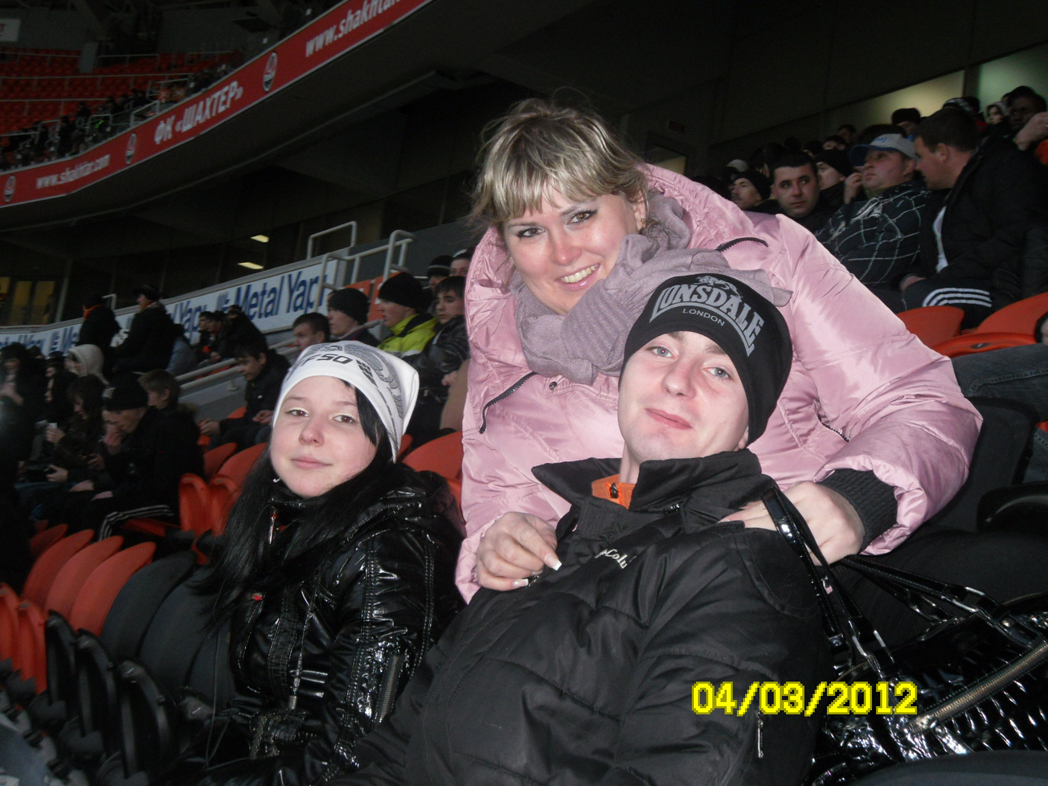
11.03.12
On 4 March at the Donbas Arena stadium in Donetsk Shakhtar (Donets’k) played against Dnipro (Dnipropetrovs’k). The Develop Ukraine foundation purchased tickets for children and youths who are clients of the local Caritas.
Clients and staff of Caritas Donets’k cheered for their home team. The final score was tied 1 to 1. “It’s a great score! For both teams, I think. I’m so happy I saw the game at the stadium. I had faith in and was inspired by how my favourite team played,” said 14 year old Dmytro after the game.
Caritas Donets and the Develop Ukraine foundation have been working together for many years. They hold joint events and provide direct care for street children. Caritas Donets’k was founded at the beginning of.jpg) 2003.
2003.
They focus on providing material and financial assistance and free services to the needy which helps encourage their spiritual and moral rebirth.
Currently, Caritas Donets’k provides services to children and adolescents who are poor or living in the streets. Every month they visit the DPC-124 (Donets’k Penal Colony) and the IDC (Investigative Detention Centre) #5. They provide psycho-social support and medical care for HIV positive women, their children and members of their families, humanitarian assistance, free lunches for the needy at a soup kitchen, psychological counselling and spiritual guidance to people who returned to Ukraine after living abroad.
Through the Mobile Work with the Youth of Ukraine project, which is financed by the Ministry of the Economy and Development of Germany, Caritas Donets’k staff is able to do the following:
1. Work with dysfunctional families.
2. Work with families who are in crisis.  3. Visit families in crisis.
3. Visit families in crisis.
4. Work with children and young people who have dependency issues.
5. Offer psychological counselling and help to vulnerable children and parents.
6. Organize holidays and events, sporting events, English language classes, and computer classes for disadvantaged children and youth.
7. Conduct case management (identifying a problem and working on how to resolve it favourably).
On average, the project serves 250 children a year.
Tags:

